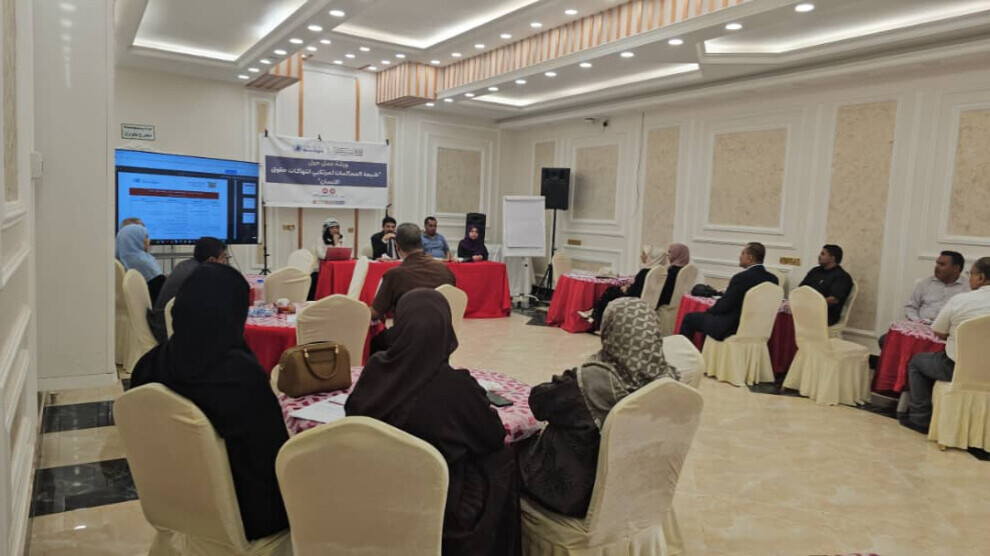Workshop in Yemen: Fair trials are a cornerstone for preventing recurrence of violations
The National Commission to Investigate Alleged Violations of Human Rights held a specialized training workshop on the nature of trials for perpetrators of human rights violations in Yemen.

Yemen — The National Commission to Investigate Alleged Violations of Human Rights (NCIAVHR) affirmed that such activities are part of its plan to strengthen the role of the national judiciary in ensuring justice for victims and redressing their harm, stressing the importance of the ongoing cooperation among the commission, the judiciary, and civil society organizations to activate accountability mechanisms and uphold the principle of no impunity.
The commission held a specialized training workshop on the nature of trials for perpetrators of human rights violations in Aden on Sunday, with the support of the Office of the United Nations High Commissioner for Human Rights.
The workshop brought together 25 participants, including members of the commission and assistant investigators, representatives from the judiciary and the Office of the Attorney General, as well as active civil society organizations working in the fields of accountability and combating impunity. The program of the workshop included a series of interactive sessions and open discussions that addressed the historical background of trials related to human rights violations, legislative and legal developments related to rights protection and accountability, and the review of international, regional, and national experiences in order to benefit from best practices and apply them in the Yemeni context.
During the workshop, the commission presented its vision regarding trials against grave and serious violations, explained mechanisms for determining legal responsibility, and discussed the role of stakeholders in creating a safe and suitable environment for trials, ensuring transparency and integrity in litigation procedures. The discussions also focused on analyzing patterns of violations in recent years, ways to improve the environment and climate for trials, ensuring the clarity of procedures for all concerned parties, in addition to identifying the technical and technological support needed by judicial authorities and building the necessary human and institutional capacities.
At the conclusion of the event, the commission emphasized that these activities were part of its plan to strengthen the role of the national judiciary in ensuring justice for victims and redressing their harm, saying, “Fair trials are one of the essential pillars for achieving justice and preventing the recurrence of violations.”
It stressed the importance of the ongoing cooperation among the commission, the judiciary, government authorities, and civil society organizations to activate accountability mechanisms and uphold the principle of no impunity.
The workshop concluded with a comprehensive evaluation session during which participants reviewed the outcomes and expected results, foremost among them the affirmation of guaranteeing victims' right to hold perpetrators of violations accountable and to prosecute them, as well as enhancing joint coordination to follow up on related cases.
The workshop was part of a series of events organized by the commission aimed at raising public awareness, supporting both official and unofficial efforts to address grave and serious violations in Yemen and to end the phenomenon of impunity.
